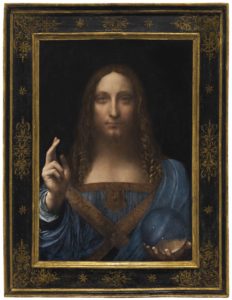We’ve been covering what has become known as the Bouvier Affair since it first broke in 2015. But for those unfamiliar with the case, this has been one of the deepest dives into the ongoings of the modern art world that has ever been seen. Dmitry Rybolovlev is a Russian oligarch who earned his fortune in the fertilizer business. He now owns the football/soccer team AS Monaco and possesses one of the finest art collections in the world. Since 2015, he has accused the Swiss businessman Yves Bouvier of swindling him out of $1.1 billion between 2003 and 2014. And now, after seven years of back-and-forth, a criminal investigation has been opened against Bouvier in Geneva. This newest development is quite a shock since another Swiss court dismissed Rybolovlev’s official complaints against Bouvier last September.
The central accusation of the Bouvier affair is that Rybolovlev has alleged that Bouvier acted as his agent in amassing his art collection, which currently or previously included works by Picasso, Da Vinci, Rothko, and Matisse. In so doing, Bouvier overcharged him for paintings and other works purchased on the oligarch’s behalf. The most prominent example is that Bouvier bought Da Vinci’s Salvator Mundi at Sotheby’s for $75 million, and then later sold it to Rybolovlev for $127.5 million. According to Rybolovlev, Bouvier stated that his commission would only be 2% rather than the 41% he seems to have taken. Rybolovlev sued Sotheby’s for $380 million for conspiring with Bouvier to defraud him. While not much has come of that lawsuit, Rybolovlev seemed to have recouped his losses since he ended up selling the Da Vinci at Christie’s New York in 2017 for $400 million (or $450.3 million with added premiums). Da Vinci’s Salvator Mundi is still considered the most expensive painting in the world.
This case has seen the insides of courtrooms worldwide, from Monaco to Singapore. The main accusation depends on answering a single question: in these transactions, was Bouvier acting as a dealer or as Rybolovlev’s agent? He could technically determine any profit margins he wanted if he was just a dealer. But if Bouvier laid out terms to act as an agent, he had to operate under a completely different set of rules. According to Swiss authorities who have reopened investigations into Bouvier, they are “convinced that the procedure will swiftly establish the criminal responsibility of Yves Bouvier and his acolytes”. So it seems we will soon see some sort of end to all this. But yet again, last year, when the Swiss courts dismissed complaints against Bouvier, the Swiss businessman, and his lawyers called it “a complete and absolute victory”. So who knows?

